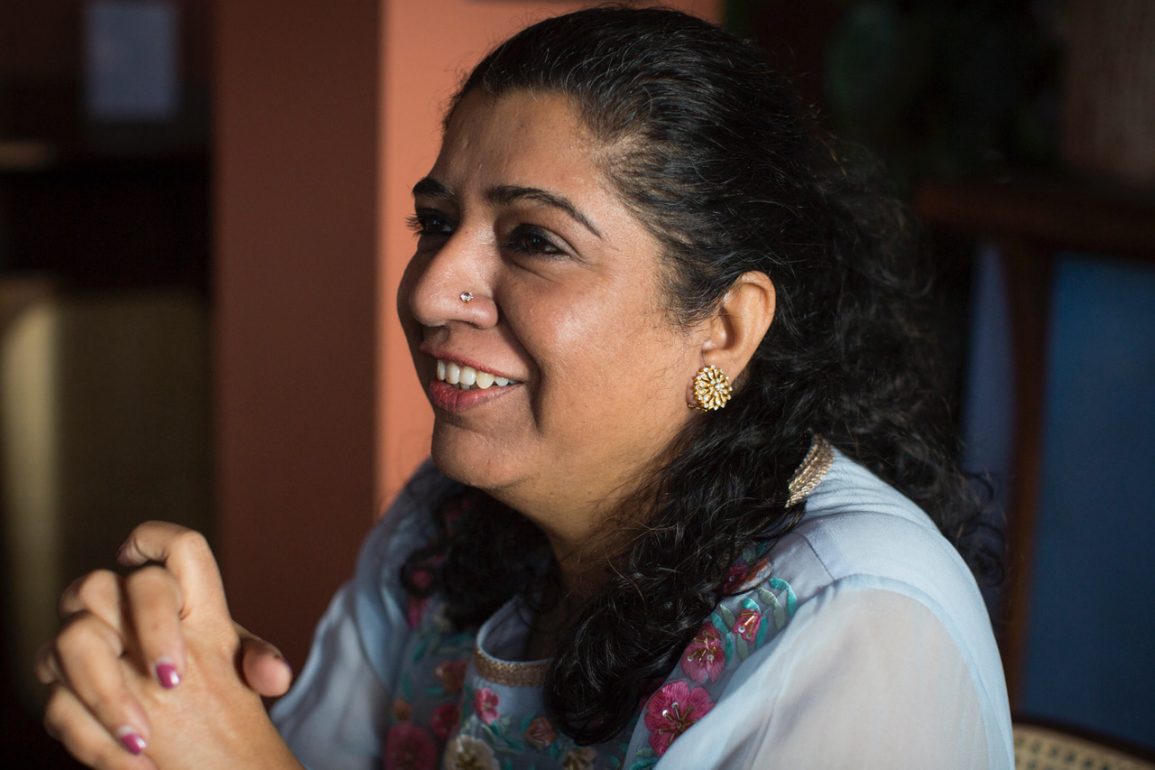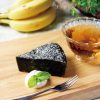Ammu: Indian Home Cooking to Nourish Your Soul – Asma Khan is the chef and owner of Darjeeling Express in Garrick Street, Covent Garden, and was the first British chef to feature on Netflix’s Chef’s Table.
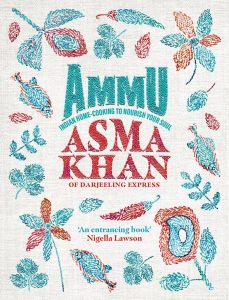
Ammu, just recently published, follows her debut award-winning cookbook Asma’s Indian Kitchen and is a delight. It’s a collection of childhood recipes that celebrates the power of home cooking and the inextricable link between food and love. Asma is a firm believer in the healing power of food, and through lockdown, she began to turn more often to the food of her childhood, and through this felt comfort and connection to distant loved ones. With over 100 recipes of simple comfort food, recipes for special occasions, quick everyday dishes, and personal memories, Ammu is a celebration of the food Asma herself loves cooking, and of the woman who nurtured her and taught her to cook: her Ammu.
Ammu is a lovely hardback, just published at £26 by Ebury Press, with photographs by Laura Edwards. Here are a couple of recipes from Ammu for you to try, and to tempt you to buy the book itself.
Navratan Korma (Nine-Jewel Korma) Serves 6
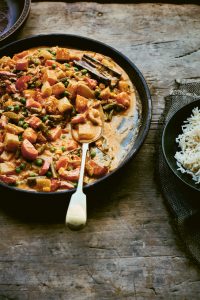
Navratan is a traditional South Asian style of gem-setting based on nine different precious stones. This korma is made up of nine colourful vegetables. It’s a great way to use up odd veg from your fridge. Try red, yellow, and orange peppers, aubergine, courgettes, baby sweetcorn, mangetout, cabbage, and spinach. Or you could par-boil some carrots, parsnips, potatoes, French beans, and pumpkin, then add red pepper, peas, sweetcorn, and purple sprouting broccoli. A comforting, creamy (and extremely nutritious) curry that is ideal for children, too!
1 kg mixed vegetables
6 tbsp vegetable oil
2.5 cm piece of cassia bark
2 green cardamom pods
I clove
1 large bay leaf
2 large onions, cut in half and thinly sliced
3-4 garlic cloves, crushed
6 cm piece of fresh ginger, grated
2 tsp ground coriander
1 tsp chilli powder
½ tsp sugar
2 tsp salt
250g full-fat Greek-style yoghurt
400ml thick coconut milk
2 tbsp ground almonds
Method
Cut all the vegetables into evenly sized pieces and set them aside on a tray. Heat the oil in a deep pan over medium-high heat. Add the cassia bark, cardamoms, clove and bay leaf, then immediately add the onions and fry until golden brown. Add the garlic and ginger and stir for 1 minute. Then add the ground coriander, chilli powder, sugar and salt and stir for 2 minutes. Add the yoghurt, lower the heat to medium and stir until most of the liquid has evaporated. Add all the vegetables, stir and cook until tender. If the vegetables start to stick, add a splash of water.
When they are cooked, add the coconut milk and ground almonds, and stir until the gravy thickens. Taste and adjust the seasoning before serving. This korma goes very well with any kind of rice or pulao and is a great accompaniment for meat or fish.
Rabri (Milk Dessert with Pistachio) Serves 4
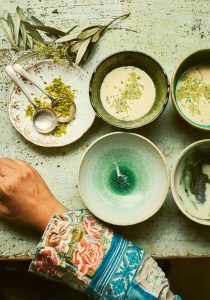

I litre of full-fat milk
60g sugar
½ tsp seeds from green cardamom pods, crushed
1 tbsp rose water
3 tbsp unblanched shelled unsalted pistachios, finely chopped
Method
Heat the milk in a heavy-based pan over high heat until it comes to a boil, then reduce the heat slightly to keep the milk at a steady rolling boil for 5 minutes. Turn the heat to low and leave the milk to simmer very gently, uncovered, for about 30–45 minutes, until the milk has reduced to one-third of its original volume. When a skin forms, use a spoon to stick it to the side of the pan; you will need to do this repeatedly. Occasionally you will have to stir the bottom of the pan to ensure that the milk does not catch.
Towards the end of the cooking time, add the sugar and the crushed cardamom seeds. When the milk has reduced, take it off the heat and use a spoon to push all the skins from the side of the pan back into the milk. Leave to cool slightly before adding the rose water.
Spoon into a serving dish and place in the fridge to chill, preferably overnight Sprinkle the pistachios on top before serving.
The Seasoned Gastronome

